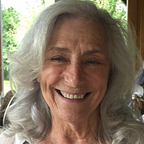Women in the Film Business and Gender Equity at 68th Berlinale
We Want More — Diversity and Visibility
The 6th discussion on the status of women in the film business and gender equity on the occasion of the 68th Berlin International Film Festival focused on the topics of diversity and visibility.
Organized by the Dortmund | Cologne International Women’s Film Festival, the round table with international experts from various backgrounds agreed on the urgent need to implement diversity standards in German film funding according to the groundbreaking standards set by the British Film Institute.
It was agreed, that this was only the start of a long overdue debate that needs to be expanded upon and continued in future.
About 120 professionals from the film industry attended the event that was hosted by the Delegation of Thuringia in Berlin and sponsored by Film und Medienstiftung NRW.
Director of the representation of Thuringia Raimund Grafe welcomed the guests and spoke about the intolerable lack of diversity:
I hardly see any black actors and actresses or performers of Turkish, Asian background on German screens — this has to change!
Festival director Silke J. Räbiger opened the lively and heated discussion with a plea:
We have apparently reached a point where no one can afford to remain silent. Let us use the momentum and attention now to initiate real cultural change. Let us continue on this path together.
Berlin-based director and performer Simon(e) J. Paetau was introduced in the keynote as a mixed-raced, non-binary person whose codes are almost unknown by the majority. Paetau discussed issues of intersectionality and stressed the importance of art because it helps us “learn to understand each other” and finally enter the realms of “decision-making bodies”. “Not about us without us!”
The following panel discussion was moderated by Aurora Rodonò (freelance curator and research fellow at the Institute for Art and Art Theory | University of Cologne, Germany). She aptly summed up the intentions of the participants with the words: “Not about us without us!”
Crucial issues are the dismantling of a film production system that is not yet open to greater diversity in the areas of gender, race, age, sexual orientation and disability.
How can ongoing and significant underrepresentation in the film industry be stopped? Christopher Racster (Executive Director of Outfest | UCLA Legacy Project, USA) started on a wry note: “Harvey Weinstein is helping us with some standards. Because he had no standards.”
He explained the importance of visibility, an issue that was explored by all panel participants in various forms, in simple words: “If you don’t see yourself you don’t feel your own value and other people don’t see you.” The Outfest UCLA Legacy Project is the only programme in the world exclusively dedicated to preserving lesbian, gay, bisexual and transgender moving images that are at risk of being lost due to deterioration and neglect.
Karola Gramann (curator and head of Kinothek Asta Nielsen) stressed how women have always been and continue to be marginalised. The Kinothek aims to find and document film work produced by women past and present and make this work available to a wider public. “We will not understand the 2 present until we understand the history.”
Emily Morgan (up-and-coming British producer) recently celebrated considerable success with her first feature “I Am Not a Witch” which earned its director Rungano Nyoni the outstanding debut BAFTA. The UK-French-ZambianGerman co-production was the first feature film ever to hit all BFI diversity standards at once. It was shot in Zambia by a female director of colour, produced by a female producer and aims to support the growing film industry in Zambia. “It set a black perspective, not reproducing the same images about Africa and black people as we always see.”
This is something German director and actress Sheri Hagen has also strongly criticised: “I am sick of these images — in German film and TV productions there exist only roles for people of colour depending on white characters.”
Representing the group “Black Artists in German Film” she stressed that “German film funding law has to change to include all talents, to give diversity access on screen. We demand stories from and about a black perspective!”
The long and intense discussion with the audience underlined the importance of valuing the impact of diversity — even from a commercial perspective. This was only the start of a long overdue debate that needs to be expanded upon and continued in future.
